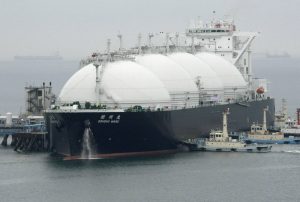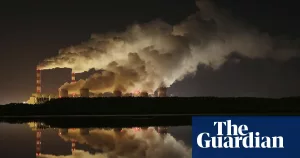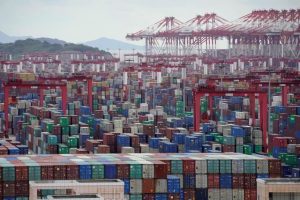Sanctions & Disruption of Energy Supply Chain
 Courtesy The Japan Times
Courtesy The Japan Times
After the conflict in Ukraine erupted Russian supply of oil and piped gas to the European Union got severely disrupted. The US and EU imposed sanctions as well as a price cap on Russian crude. The ostensible purpose seems to be to curb Russia’s revenues from crude and gas in order to hurt its expenditures in the war it is waging in Ukraine. What transpired subsequently was that Russia began shipping discounted Ural crude to China and India .Demand in the developing countries for Russian LNG and crude remains strong but access become difficult and costly as available gas and LNG got diverted from US and the Middle Eastern gas producers to the European Union as the EU energy demand increased due to the approach of winters coupled with US and UK sanctions on Russian gas .India and China being economically resilient and huge economies can directly purchase crude from Russia. US met the gas supply deficit of EU however there is a limit to the pace and number of LNG terminals and infrastructure and LNG carriers that can be constructed or floating LNG terminals that can be put in place in Europe in place of cheaper and convenient Russian piped gas. The energy situation in Europe remains the same in terms of demand yet it has become more unclear in terms of assured supply. As the cost of shipped LNG from the US is high compared to piped Russian gas the cost of electricity for households in Europe and the Uk has doubled and even tripled and the spending power of the citizens drastically slashed. The EU and the UK have turned to the once ” forbidden” environmentally unsafe and polluting coal for powering its power plants.
Climate Change Initiatives Relegated to the Backseat
 Courtesy The Guardian
Courtesy The Guardian
So much for the Climate Change initiatives which may be set back by a decade and the lofty declarations at the UN sponsored Co2 summits participated with great pomp and fanfare by developed and developing countries alike .The fresh orientation is towards nuclear energy . Although the fashionable word is ‘ renewables ” it remains a capitol intensive investment as an independent power grid and infrastructure will need to be designed and laid to complement the existing fossil fuel based transmission and distribution grid. Renewable energy remains weather dependent unfortunately. Russian crude is being shipped on an expanding ghost fleet or phantom fleet of tankers and its origin being camouflaged or disguised in certain waters and in some cases a fresh certificate of origin obtained to conveniently evade the sanctions regime. OPEC and its main member the Kingdom of Saudi Arabia and a non OPEC producer of crude Russia have banded together to ensure an interrupted supply of crude to the world to avoid economic uncertainty which is upsetting for the West. Hiking of interest rates in the US , recession in the Western economies leading to a reduced appetite for non essential textile and non value added imports from the developing countries like Bangladesh and Pakistan are having a disastrous impact on their economies and a terrible foreign currency and external balance of payment crisis. The developing world is no longer in a position to import luxury goods, cars and appliances from Japan and South Korea which may slow down those economies as well and these countries are likely to cut down on the funds allocated for poverty alleviation , flood rehabilitation and public health uplift projects in the poor countries. Multilateral aid agencies and institutions like the World Bank (WB), Asian Development Bank (ADB) and International Monetary Fund (IMF) no longer have the cushion of surplus funds from their main contributors which are the Western countries.The proverbial free lunch is no longer there due to the West and NATO’s financial commitment in the war in Ukraine. There is no immediate end forecast to the conflict in Ukraine despite the extent of reduction of hydrocarbon revenues of Russia .
Containers Pile at Ports
 Courtesy The Star
Courtesy The Star
The seaports of Egypt and Pakistan are choked with imported goods that cannot be cleared due to non opening of Letter of Credit which in turn is on account of lack of availability of sufficient foreign currency or US dollars. Such goods and containers contain edible oils, grains ,pulses, perishable foodstuff, essential medicines , raw material for industry and export oriented industries widening the external account deficit. The goods held up at the seaports since months now have shipping companies detention charges and demurrage piling up which may exceed the shipped value of the imported goods and the impact of the goods clogged at the seaports has yet not fully been manifested in these countries. The global food supply chain is precariously close to being interrupted. Sri Lanka and its seaports are already reeling from the foreign currency crisis and petrol rationing is in place . No solution appears to be in sight for the developing countries predicament of the current energy and food supply chain crisis and if the economic situation does not ease in a matter of weeks then severe political discontent leading to political upheaval may take place in many parts of the developing world including Sri Lanka and populous countries such as Bangladesh, Pakistan and Egypt. The era of fantastic profits for the shipping companies is over as weakening demand has drastically cut the cargo and container movement on the seas and shipping and port revenues continue to fall .The orders placed for ships and tankers at ship building yards is declining and shipyards have been advised to slow construction and extend the delivery schedules of ongoing shipbuilding projects. The blue economy of maritime nations is placed in jeopardy soon after the end of the pandemic which wrecked havoc on the global economy
By Nadir Mumtaz

Leave A Comment